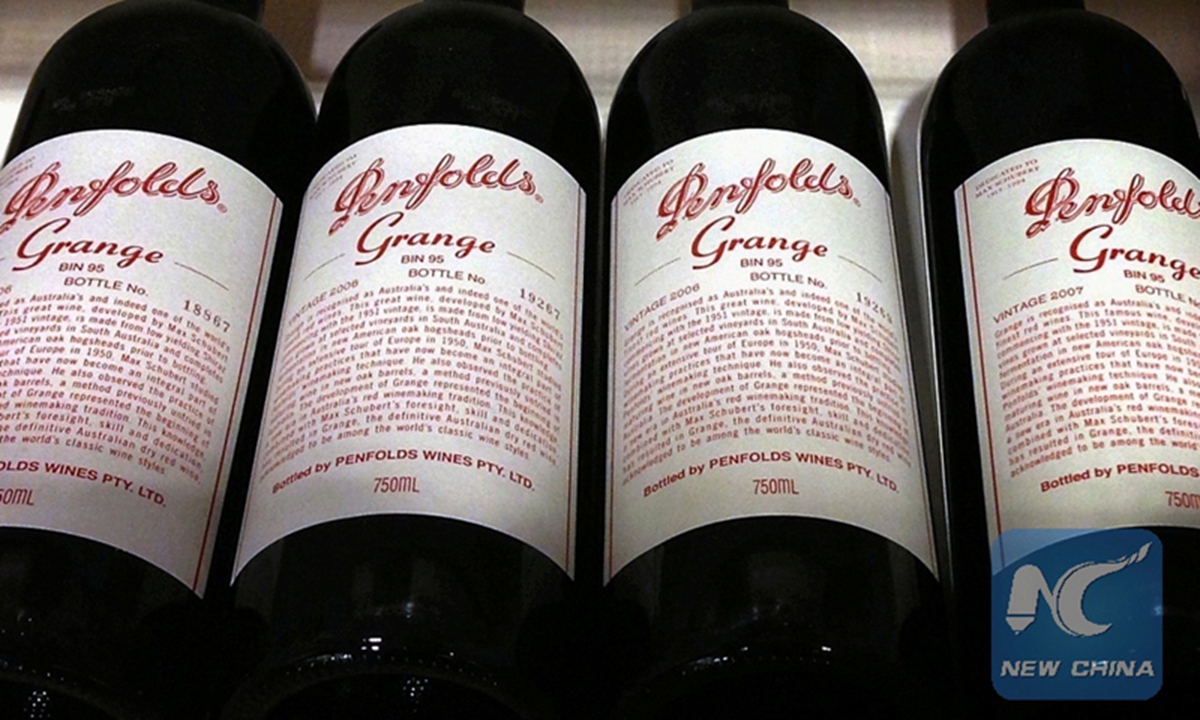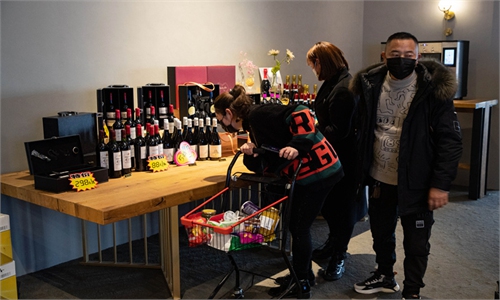
Bottles of Penfolds Grange, made by Australian wine maker Penfolds and owned by Australia's Treasury Wine Estates, sit on a shelf for sale at a wine shop in central Sydney, Australia, August 4, 2014. Photo: Xinhua/REUTERS
Australia has been complaining about setbacks in trade with China on different occasions in recent months. These complaints are unlikely to stop if Canberra continues its wrong approach by focusing on political stunts.The Australian government announced on Saturday that it would file a formal complaint with the WTO over China's imposition of alleged hefty anti-dumping tariffs on Australian wine exports.
The move, which is the second time in six months that Australia took its trade dispute with China to WTO, marked a further escalation in trade tensions that will see knot tighten between the two countries. It also came just days after Australia called for a tougher stance against the alleged "economic coercion" by China at the G7 summit.
Even with the iron ore trade as a buffer to trade disputes between China and Australia, the downward spiral in bilateral trade relations has been faster than many had expected over the past year. The irony is that the Morrison government has appeared to be eager to address the trade issues with its largest export market, only to see the standoff escalating. Of course, all the development is understandable if one takes a closer look at the efforts Canberra has made during the process.
As an obvious disrupter to China-Australia relations from the beginning, Canberra has been politicizing trade and economic issues in an effort to put on pressure over China to strengthen its alliance with the US. This is also why concern over the souring ties with its largest trading partner failed to prompt Australian politicians to reflect the root cause of the country's economic tensions with China, which apparently appeared to prefer to press China on all fronts to resolve the trade issues.
If anything, Canberra's preference to attempt to pressure other parties when it comes to bilateral dispute reflects its implicit ideological bias and arrogance toward non-Western countries.
Australia may think it can pressure China by taking it to the WTO, but China has sufficient evidence to support its trade practices. China's decision to impose anti-dumping tariffs on Australian wine is based on facts and trade rules.
According to an application filed by the China Alcoholic Drinks Association, Australian wine exports to China reached 120,800 kiloliters in 2019, up by 113 percent from 2015. During the same period, the average export price of Australian wine fell 13.36 percent in the Chinese market. Adversely impacted by cheap wine imports, China's domestic production of similar wine products suffered a significant drop of 61.11 percent, shrinking from 1.16 million kiloliters in 2015 to only 451,500 kiloliters in 2019.
Australia's blind movement down the wrong path won't lead to the results it wants, and will only serve to increase anxiety amongst business and capital markets.
Ultimately, no matter how Canberra labels Chinese tariffs as "economic coercion" or united its allies to counter China's economic influence, it won't help solve its trade difficulties. To ease the tensions with China, Canberra must first repair the damage it did to bilateral ties.


